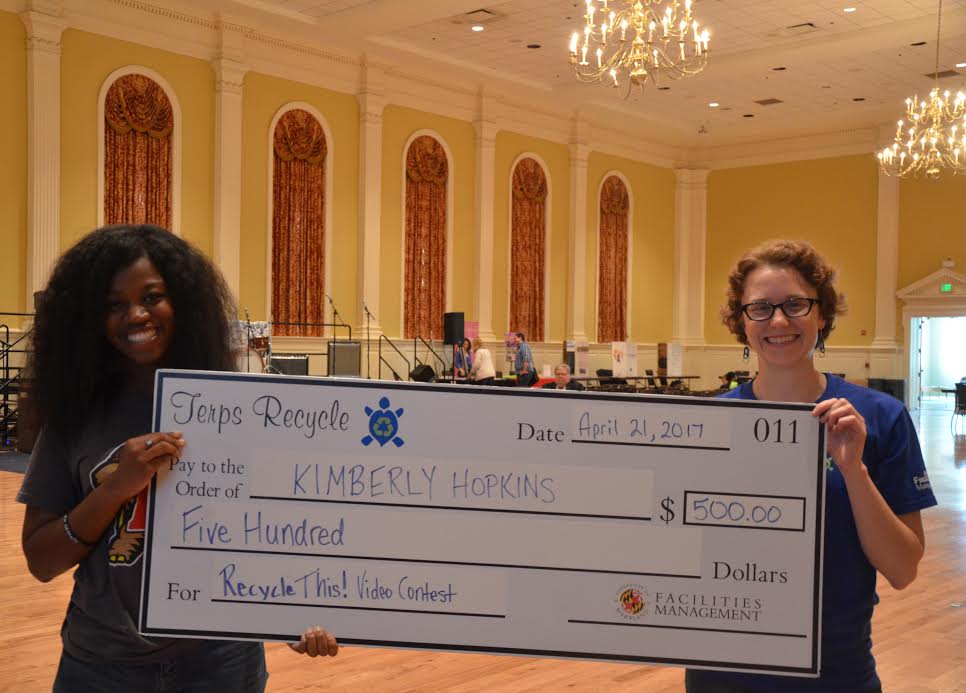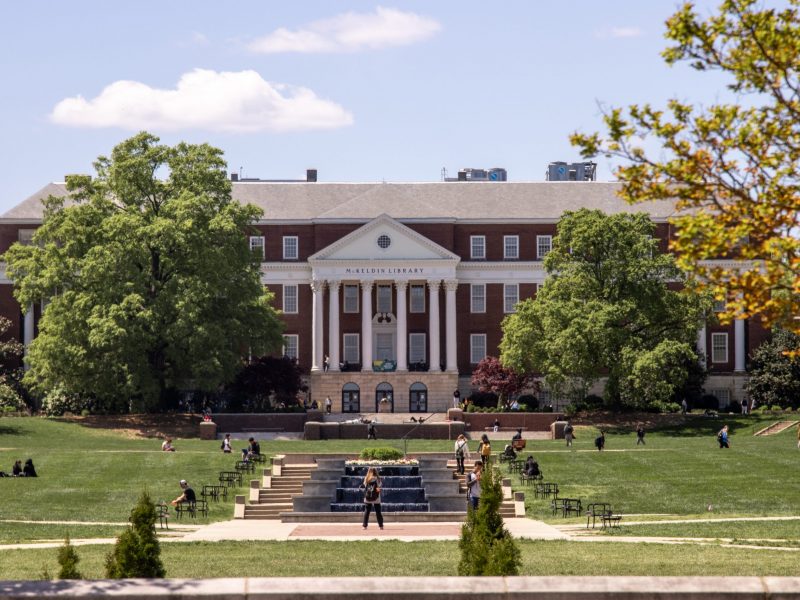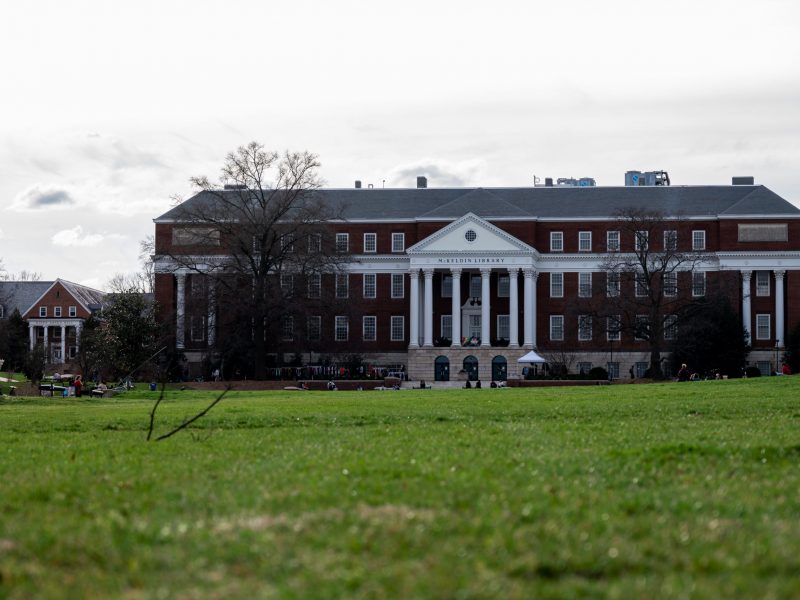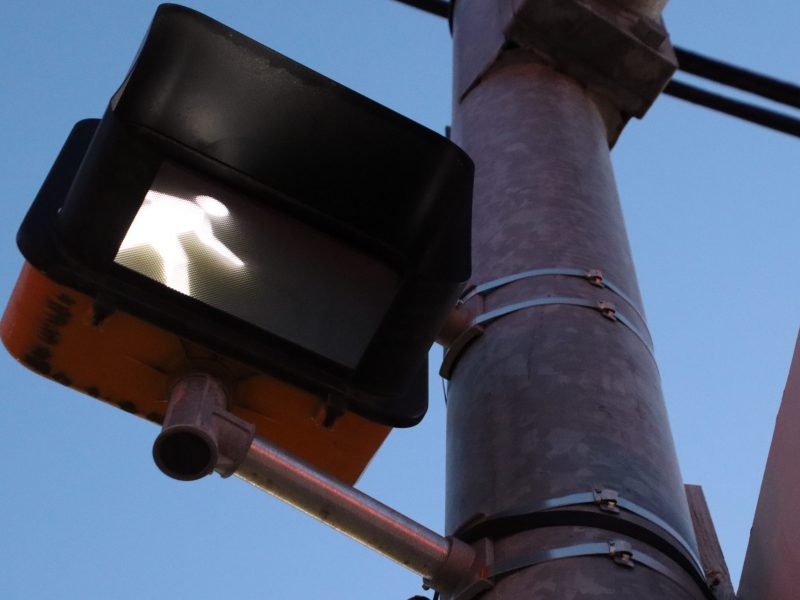During this year’s RecycleMania competition, the University of Maryland rose into the top 15 universities for total recycling and improved across multiple categories, including waste diversion and composting.
The annual competition features universities across the United States and Canada that compete with one another in various categories by recording how much recycled material they collect. This year, it took place between Feb. 5 and April 1.
In total, University of Maryland recycled 808,676 pounds of waste during the eight-week period. Nationwide the university ranked No. 15 in the total recycling category out of 214 schools, rising by five spots from 2016’s competition. This university ranked second in Maryland — Johns Hopkins nabbed the top spot — and sixth among Big Ten schools for total recycling.
[Read more: UMD improves standings in annual RecycleMania tournament]
For the diversion category, which is how much waste is diverted from landfills, this university’s recycling rate added to about 44 percent, rising from third place last year to the top spot in the state of Maryland.
The addition of recycling bins to sororities and fraternities through a $17,331 grant from the Office of Sustainability may have helped increase the overall recycling rate on campus, said Adrienne Small, a Facilities Management recycling specialist. The grant provided one recycling bin for each of the 65 satellite houses and four total bins for each of the 33 chapter houses in fall 2016.
But the composting category, called food service organics, by far improved the most, Small said. This year, about eight pounds of organic waste per person was collected during the competition, rising from five pounds last year. This increase led the university to rank first in Maryland and second in the Big Ten.
Small said she attributes part of the improvement in compost to the shift to the Anytime Dining plan, which started at the beginning of the fall 2016 semester.
Before this year, students were able to take out food from the dining halls, but with the creation of Anytime Dining, which is all-you-can-eat, students are only allowed to take one or two small items out the diners. Food waste from the dining halls is composted.
“The change in the dining plan system definitely played a factor,” Small said. “All food scraps now remain in the dining hall, which is a huge component to our campus waste collection.”
And the expansion of compost bins from two dorms to 11 this past fall played a role as well, said Bill Guididas, recycling and solid waste coordinator.
The amount of compost waste this university has collected has increased by roughly 300 tons from 2015 to 2016, according to a previous Diamondback article.
[Read more: UMD’s transition to Anytime Dining has saved more than 6 million disposable products]
This university also held a shredding and e-waste collection event March 29 where 5.46 tons of sensitive documents were shredded and nearly 7,000 pounds of electronics were recycled.
Moreover, during the eight-weeks, this university saved 885 metric tons of CO2, which is equivalent to removing 173 cars from the road, Small said.
This university reused the “Clean the Stream” theme, originally created for the 2016 competition, Guididas said. This theme emphasizes the importance of recycling materials properly.
“We felt it was important to keep going with the campaign we had started last year,” said Andrew Muir, the sustainability office’s communications coordinator. “In past years we told people to recycle, but we wanted to take it one step further and tell people how to recycle properly.”
Small said foods, liquids and plastic bags should not be recycled.
Muir said the events promoting the competition in residence halls, posters throughout the campus and an increased social media presence might have increased awareness, helping catapult the university to the top of several categories. The Terps Recycle Facebook page reached over 5,000 users and the Terps Recycle Twitter handle had 36,000 impressions.
Before next year’s competition, Guididas said the university is hoping to expand compost collection on campus to academic and administrative buildings, starting with McKeldin Library. All of the new buildings slated to be completed by next year, including the Edward St. John Learning and Teaching Center, will also have compost bins, he added.
“I think our results this year show that people are not only taking interest in recycling and making right choice, but also that they are taking the next step in educating themselves to learn more about what they should and shouldn’t recycle,” Muir said. “The goal of this competition is to get more people engaged in compost and waste reduction, which I think we definitely succeeded at.”



